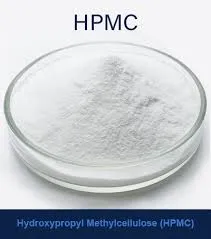
Xul . 28, 2024 09:15 Back to list
Exploring HPMC Application in Enhancing Performance of Gypsum Plaster for Construction Projects
HPMC for Gypsum Plaster Benefits and Applications
Hydroxypropyl Methylcellulose (HPMC) is a versatile cellulose ether that has gained significant attention in the construction industry, particularly in the formulation of gypsum plaster. As a water-soluble polymer, HPMC offers a multitude of advantages that enhance the performance of gypsum-based materials, making it an essential additive in modern construction practices.
Understanding HPMC
HPMC is derived from natural cellulose and has been modified to improve its properties. It is non-ionic, does not interact with other ingredients in the formulation, and is resistant to high temperatures. One of its key features is its ability to form a gel-like structure when mixed with water, which plays a crucial role in improving the workability of construction materials like gypsum plaster.
Benefits of HPMC in Gypsum Plaster
1. Improved Workability One of the primary benefits of incorporating HPMC into gypsum plaster is the enhanced workability it provides. HPMC increases the viscosity of the plaster mixture, making it easier for workers to apply and spread the material. This is particularly beneficial for large surface areas or intricate designs, where precision is critical.
2. Water Retention HPMC helps to retain water within the plaster mix, preventing premature drying. This property is vital, especially in hot and dry environments where water loss can occur rapidly. By maintaining adequate moisture levels, HPMC ensures that the plaster retains its adhesion and allows proper curing, leading to stronger, more durable finishes.
3. Reduced Shrinkage and Cracking Gypsum plaster can be prone to shrinkage and cracking as it dries. The addition of HPMC minimizes these issues by forming a flexible matrix that accommodates slight movements and stresses during the curing process. This flexibility helps in maintaining the integrity of the plaster, resulting in a smoother and more even finish.
hpmc for gypsum plaster

4. Enhanced Adhesion HPMC promotes better adhesion of the gypsum plaster to various substrates, including concrete, brick, and block surfaces. This improved bonding ensures that the plaster remains intact over time, reducing the likelihood of delamination or peeling.
5. Customization of Properties By adjusting the concentration and type of HPMC used, manufacturers can tailor the properties of gypsum plaster to meet specific requirements. For instance, different grades of HPMC can be employed to achieve variations in viscosity, water retention, and drying time, allowing for versatile application in different construction scenarios.
Applications in the Construction Industry
The incorporation of HPMC in gypsum plaster has found various applications in the construction industry. It is commonly used for interior wall finishes, ceilings, and decorative elements. The improved performance characteristics provided by HPMC contribute to enhanced aesthetic quality and longevity of plastered surfaces.
In addition to standard plaster applications, HPMC-modified gypsum formulations are increasingly used in pre-mixed and ready-to-use products. This convenience aligns with contemporary construction demands where efficiency and ease of application are paramount.
Conclusion
As the construction industry continues to evolve, the use of additives like HPMC in gypsum plaster represents a significant advancement in material technology. The benefits of improved workability, water retention, reduced shrinkage, enhanced adhesion, and customization make HPMC a valuable component in creating high-quality gypsum-based products. Its application not only streamlines the construction process but also enhances the durability and aesthetic appeal of building finishes. As such, HPMC will likely continue to play a crucial role in the future of construction materials.
-
Unlocking the Benefits of HPMC Products: A Gateway to Versatile Applications
NewsAug.07,2025
-
Unleashing the Potential of HPMC Ashland: A Comprehensive Look
NewsAug.07,2025
-
Tile Bonding Cellulose: The Key to Superior Adhesion and Durability
NewsAug.07,2025
-
Hydroxypropyl Methylcellulose Powder: The Versatile Component in Modern Pharmaceuticals
NewsAug.07,2025
-
Hydroxyethyl Cellulose: The Versatile Solution for Various Industries
NewsAug.07,2025
-
Hydroxyethyl Cellulose (HEC): The Versatile Polymer for Various Applications
NewsAug.07,2025







